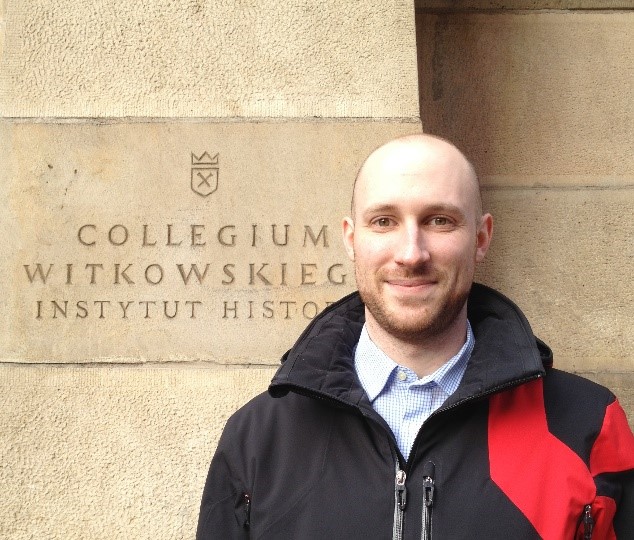Poland – Negotiating the Brexit Curve
by Paweł Markiewicz
This thematic series of articles attempted to examine the economic effect of Brexit on Poland. The first two installments examined Poland’s recent economic growth and Poland-UK relations, respectively. With the British House of Commons rejecting the Brexit deal negotiated by Prime Minister Theresa May in Brussels, this piece intends to undertake the position of determining how Poland intends to negotiate the Brexit curve.
Following the parliamentary vote in the House of Commons on January 15, 2019 which voted down Theresa May’s Brexit deal, and with her intention to introduce a “Brexit Plan B,” the question looms as to whether a subsequent, better deal can be negotiated between London and Brussels or whether the UK will ultimately leave the EU via a hard Brexit with no deal.
Almost immediately after the result of the Brexit vote was made public, Poland’s Prime Minister Mateusz Morawiecki commented in a Tweet that a hard or no deal Brexit would be the worst solution for both parties. He expressed a desire to work with EU partners to examine new Brexit propositions by the UK and reaffirmed: “We will do everything to ensure our citizens and businesses are provided maximum predictability and security.”
As London and Brussels go back to the drawing table concerning a Brexit deal, the thought of a hard Brexit remains a possibility. With this in mind, key questions to consider are: how does Poland view the possibility of a hard Brexit? And how is it prepared for this Brexit option?
There is no doubt that any sort of Brexit will disrupt economic trade inside Europe. According to Janusz Bugajski of the Center for European Policy Analysis, this disruption would spell certain detriment for Central East European economic growth since an EU-UK customs border will lower demands for EU exports to the British Isles; exports which some states depend on. For example, 1.3 % of Hungary’s gross domestic product (GDP) and 3 % of Slovakia’s rely on exports to the UK; primarily in the automotive and machinery sectors. Almost 2 % of Poland and Lithuania’s GDP comes from the export of food products to the UK. For Poland, the UK is the second largest market for Polish food exports right behind Germany.
A hard Brexit would mean the return of customs and border control, making the UK into an overnight “third world” for the EU. Piotr Arak, director of the Polish Economic Institute, illustrated this chain reaction: a return of customs duties on products or sanitary controls of foods would adversely increase costs and deliveries to the UK market. This also means a cost in product prices, something which Arak believes would contribute to a drop in demand of Polish goods.
To put it realistically, after a hard Brexit, customs duties on Polish exports to the UK could rise by 8.5 %. This increase would hit meat and dairy producers. Speaking of agricultural products, average export duties could exceed 28 %. “Overall, this means slower growth for the entire European economy, and Poland in particular may suffer,” Arak warns.
It is not only economic effects however that concern Poles. The large Polish diaspora in the UK will also feel effects of a hard Brexit. Economist Ryszard Bugaj of the Polish Academy of Sciences believes a hard Brexit could create a certain negative opinion toward those from the EU on the British Isles; turning them into social outcasts of sorts. Moreover, a hard departure from the EU could mean a lack of legal stability for Poles living there. The status of Poles with no British citizenship or permanent residency will certainly weaken. For example, the scope and condition of social benefits, pensions, healthcare and education will all be in question. Poles without legal permission to work in the UK may be forced to ascertain such documents.
A hard Brexit would also effect a sector of the EU from which Poland has benefitted greatly – the EU budget. Experts estimate that the UK contributes some 6 % to the Union’s budget. If the UK were to leave the EU via a hard Brexit, this would mean a hole in the EU budget, one amounting to an estimated 16.5 billion Euros (some USD 18.7 billion) by 2020; a void the remaining member states would have to fill. In addition, the terms of May’s defeated deal guaranteed a British pay-out of 39 billion Pounds (or USD 50.8 billion). No mutual deal and a hard Brexit means that even this sum would be lost. As the biggest beneficiary of EU development funds, a smaller budget would entail less funds for Poland.
Hard Brexit could also affect EU solidarity. A lack of concrete regulations concerning Brexit means that the European Commission would coordinate the reaction of EU member states to UK withdrawal. The problem with this means there would not be a unanimous response from the EU member states to Brexit. This scenario opens the door to a dangerous competition between EU member states in their relations with London with individual interests superseding EU cohesion.
Poland has already made some steps in preparation of the upcoming UK withdrawal from the EU. The Ministry of Internal Affairs and Administration is preparing a project to regulate the legal status of some 5,8 thousand British citizens and their families living in Poland. The project envisions a 1 year transition period during which Britons are expected to apply for temporary or permanent residency.
With these possibilities in mind, it is certainly in the interest of both the UK and the EU to come to the best terms for a Brexit deal which would benefit both parties. For Poland in particular, a Brexit deal is of utmost necessity to not only maintain good, diplomatic relations with a NATO ally but to also continue the country’s economic growth, development and stability. One thing is certain – much uncertainty still remains.
Are you interested in exploring this topic further? Would you like to support PAC’s advocacy efforts? Please click

Paweł Markiewicz specializes in 20th century East-Central European history. He is a doctoral candidate at the Institute of History, Jagiellonian University in Cracow, Poland. He comments on historical and modern events in that region.
